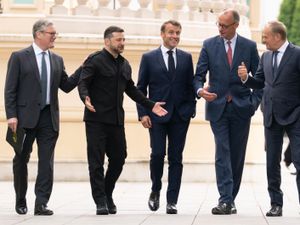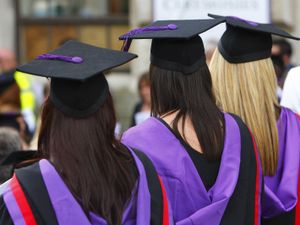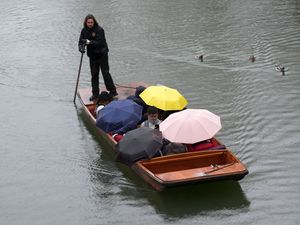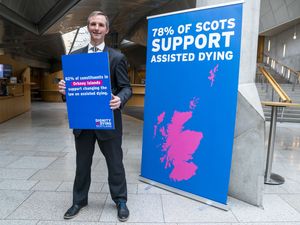Police chief defends protest tactics after statue torn down
The chief constable of Avon and Somerset Police said arresting protesters would have led to a ‘very violent confrontation’.
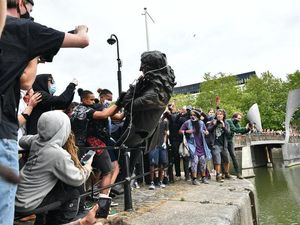
Bristol’s police chief has defended his officers for not intervening to stop protesters pulling down the statue of slave trader Edward Colston.
The bronze statue of the 17th century figure was pulled down with ropes, dragged through the streets and thrown into the harbour during a Black Lives Matter protest on Sunday.
Avon and Somerset Police have launched a criminal damage investigation into what happened to the statue, which has long been a source of controversy in the city where it has been situated since 1895.
Bristol Mayor Marvin Rees said the damaged statue was likely to be placed in a museum alongside placards from the march that were laid around the Colston plinth.
Chief constable Andy Marsh said that had his officers intervened to arrest those responsible there would have been a “very violent confrontation”.
“To arrest suspects would likely to lead to injuries to suspects, injuries to officers, and people who were not involved in damaging property being thrown into a very violent confrontation with the police that could have had serious ramifications for the city of Bristol and beyond,” Mr Marsh said.
“Can you imagine scenes of police in Bristol fighting with protesters who were damaging the statue of a man who is reputed to have gathered much of his fortune through the slave trade?
“I think there would have been very serious implications and whilst I certainly do not condone crime or damage of any sort, I fully support the actions of my officers.
“They responded with common sense, sound judgment and in the best interest of public safety.”
John Apter, the chairman of the Police Federation of England and Wales, criticised the force for not intervening, telling the BBC it “sent quite a negative message”.
Downing Street described the incident as a “criminal act” and said the “democratic process should be followed”.
“People can campaign for the removal of a statue but what happened yesterday was a criminal act and when the criminal law is broken that is unacceptable and the police will want to hold to account those responsible,” the Prime Minister’s official spokesman said.
Home Secretary Priti Patel described the incident as “utterly disgraceful”, while crime, policing and justice minister Kit Malthouse called for those responsible to be prosecuted.
Speaking on LBC, Labour leader Sir Keir Starmer said it was “completely wrong” for the statue to be pulled down in that way.
But he added: “You can’t, in 21st century Britain, have a slaver on a statue – a statue is there to honour people.
“That statue should have been brought down properly with consent and put, I would say, in a museum.”
Around 10,000 people took part in the protest on Sunday, which was praised by the force for being “peaceful and respectful”.
Mr Rees said he could not condone the damage to the statue but praised the police response.
“I think what we’ve seen is intelligent, wise policing that’s avoided the kind of confrontations we’ve seen here in other cities and certainly in the US,” Mr Rees said.
“If you just want to come out with bombastic statements, you are going to end up going down this Trumpian route, and that’s not the kind of politics we need right now.”
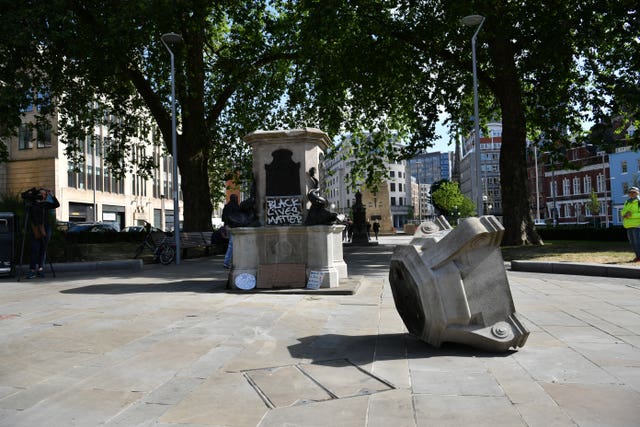
Colston’s involvement in the slave trade through the British-based Royal African Company was the source of much of the money which he bestowed on Bristol.
The statue was one of a number of landmarks in the city to bear Colston’s name, although music venue Colston Hall will be renamed this year as part of a major refurbishment.
A spokesman for Historic England said the “unauthorised removal of a listed structure” could not be condoned, but recognised that the statue had been a symbol of injustice and a source of pain.
“We are here to offer guidance and support but believe the decision is best made at a local level – we do not believe it must be reinstated,” he added.
More than 10,000 people have signed a petition calling for a statue of Dr Paul Stephenson – who led the 1963 Bristol Bus Boycott – to replace the Colston memorial.
On Monday evening, Avon and Somerset Police said it had gathered a “large amount of video footage” and urged those involved with the toppling of the statue to come forward.
“Our inquiry team are not in a position to release images of those we’d like to speak to about this incident, but the footage clearly shows the small group of people who were directly involved,” a force spokesman said.
“We’d urge these people involved in the damage to contact us as soon as possible to help us with our enquiries, before a media appeal becomes necessary.”
The spokesman appealed for anyone who filmed the damage to contact the force.

